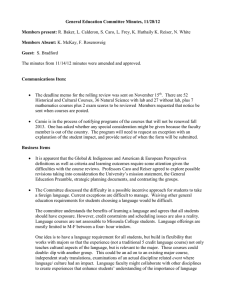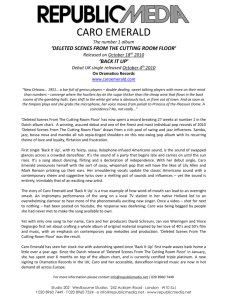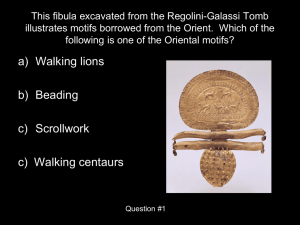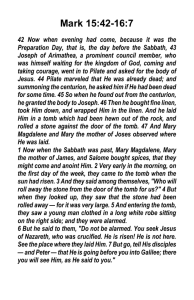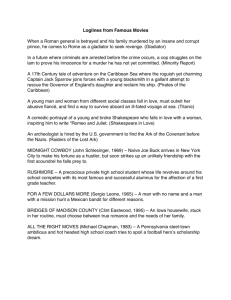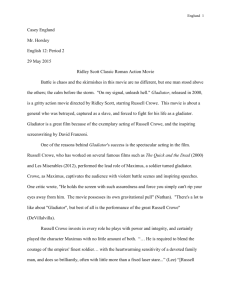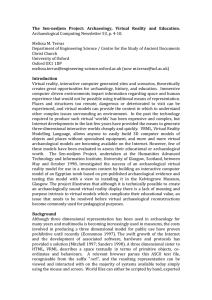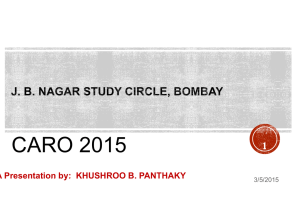The Tomb of the Gladiator Forgotten
advertisement
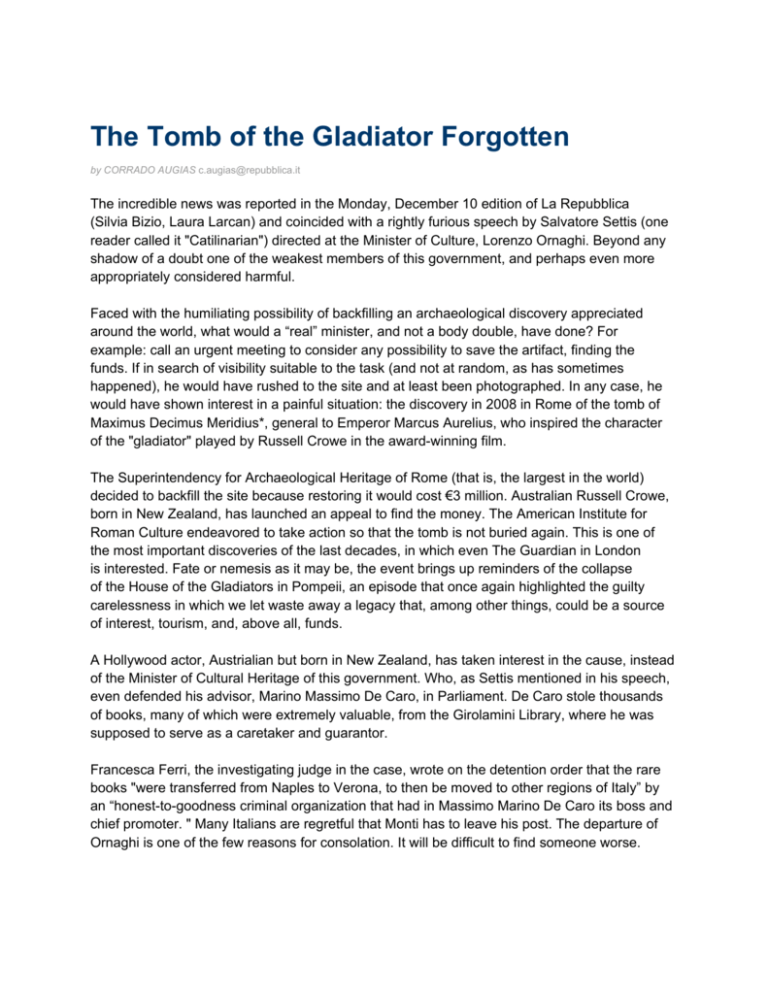
The Tomb of the Gladiator Forgotten by CORRADO AUGIAS c.augias@repubblica.it The incredible news was reported in the Monday, December 10 edition of La Repubblica (Silvia Bizio, Laura Larcan) and coincided with a rightly furious speech by Salvatore Settis (one reader called it "Catilinarian") directed at the Minister of Culture, Lorenzo Ornaghi. Beyond any shadow of a doubt one of the weakest members of this government, and perhaps even more appropriately considered harmful. Faced with the humiliating possibility of backfilling an archaeological discovery appreciated around the world, what would a “real” minister, and not a body double, have done? For example: call an urgent meeting to consider any possibility to save the artifact, finding the funds. If in search of visibility suitable to the task (and not at random, as has sometimes happened), he would have rushed to the site and at least been photographed. In any case, he would have shown interest in a painful situation: the discovery in 2008 in Rome of the tomb of Maximus Decimus Meridius*, general to Emperor Marcus Aurelius, who inspired the character of the "gladiator" played by Russell Crowe in the award-winning film. The Superintendency for Archaeological Heritage of Rome (that is, the largest in the world) decided to backfill the site because restoring it would cost €3 million. Australian Russell Crowe, born in New Zealand, has launched an appeal to find the money. The American Institute for Roman Culture endeavored to take action so that the tomb is not buried again. This is one of the most important discoveries of the last decades, in which even The Guardian in London is interested. Fate or nemesis as it may be, the event brings up reminders of the collapse of the House of the Gladiators in Pompeii, an episode that once again highlighted the guilty carelessness in which we let waste away a legacy that, among other things, could be a source of interest, tourism, and, above all, funds. A Hollywood actor, Austrialian but born in New Zealand, has taken interest in the cause, instead of the Minister of Cultural Heritage of this government. Who, as Settis mentioned in his speech, even defended his advisor, Marino Massimo De Caro, in Parliament. De Caro stole thousands of books, many of which were extremely valuable, from the Girolamini Library, where he was supposed to serve as a caretaker and guarantor. Francesca Ferri, the investigating judge in the case, wrote on the detention order that the rare books "were transferred from Naples to Verona, to then be moved to other regions of Italy” by an “honest-to-goodness criminal organization that had in Massimo Marino De Caro its boss and chief promoter. " Many Italians are regretful that Monti has to leave his post. The departure of Ornaghi is one of the few reasons for consolation. It will be difficult to find someone worse. * Translator’s note: This is the name of the fictional character in the movie. The mausoleum was built by, and dedicated to, Marcus Nonius Macrinus.
